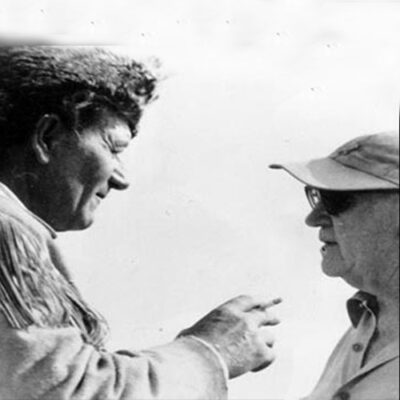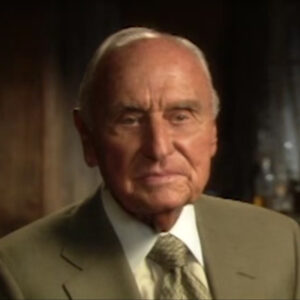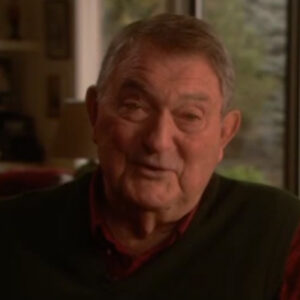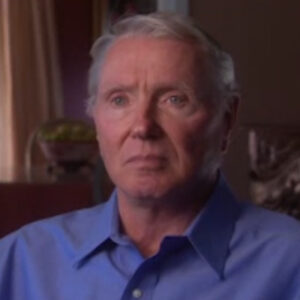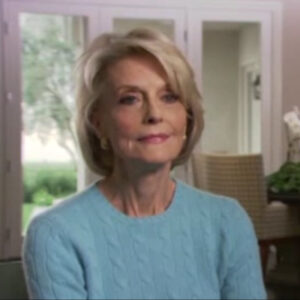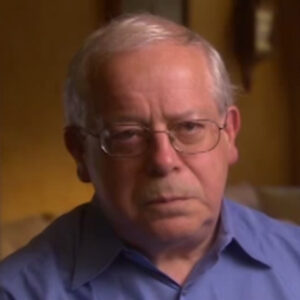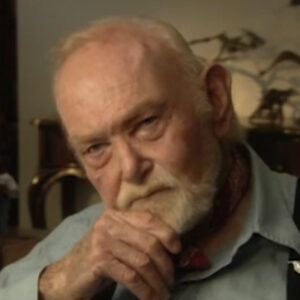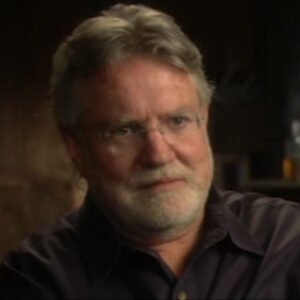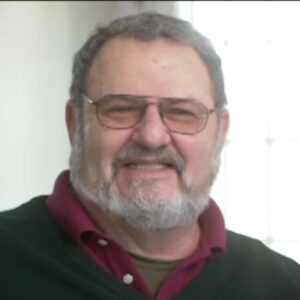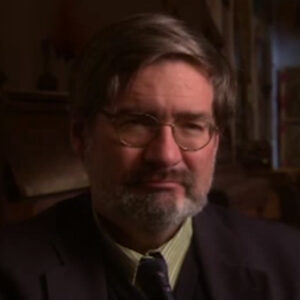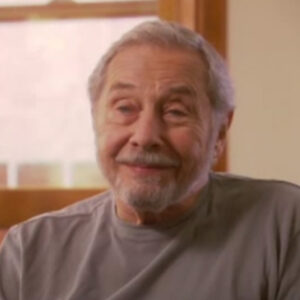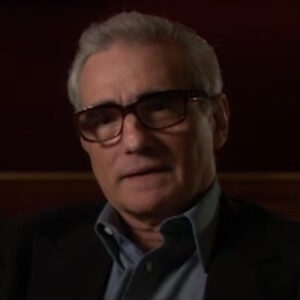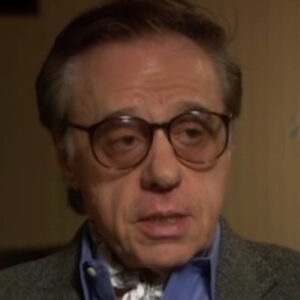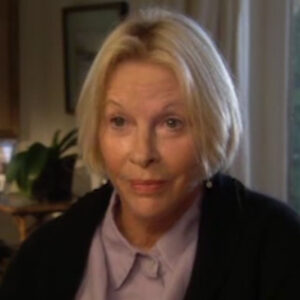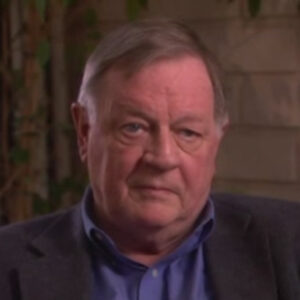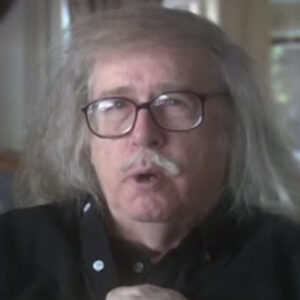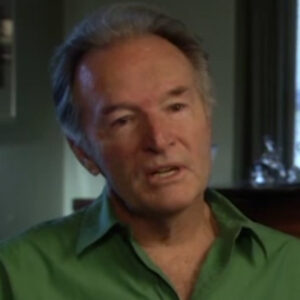Speaker One forecaster searches of the company to cast a.
Speaker When Ford was casting the searchers, his his main assistant, a woman who’d worked for him for years and years, happened to see a play at the players theater in which I played a very young girl.
Speaker And they were looking for a really a young teenager, a 17 year old, and which was the character of Lucy Edwards. And she said, Pappy, you can see her. And so I don’t know, the next day or the day after I went into his office, I think which I think we’re a 20th and.
Speaker Hates the fridge. It’s it was one of us, of course. OK, I’m sorry.
Speaker When John Ford, who who I first knew as Mr. Ford and then subsequently knew as Pappy was casting the searchers, he he had a beloved assistant who had worked with him for years and years, a woman who was secretary, who who organized things and who knew his ways. And she had gone with a friend to see a play at the Plaza Theater. I was just in college at that point, 20, 21, and playing the lead of a very young and young girl. And it and he said he she said to him, you got to see you’ve got to see her. She might make a great Lucy. So I went to Warner Brothers the next day and I met him and said, how do you do? And left. It was very quick. He had a predilection for redheads who reminded him of I mean, he used Maureen O’Hara, an old friend of mine, used people like that all the time, Irish looking, which was kind of odd when you think about the Edwards family, because everybody else was a brunette or most of them were. But nonetheless, he cast me and as if I was off to mine, reveille, it was great.
Speaker Wallace is watching and heard about his reputation as a director for the.
Speaker Well, I’m a movie brat, and my father wrote all the Rodgers’s Astaire pictures and was well known in Hollywood as a screenwriter, a new Ford, and said that he was the irascible and difficult to work with, but that I would have a good time. He was darling to me. He was tender. He was careful. He was very sweet. And I and I found his his rep company with what was known as his rep company on the whole. Very, very funny. People like Ken. What’s his name. Yeah, Ken Kinkaid. People like Ken Curtis killed me. They were so funny. And Ali, Carrie was delicious. And Harry Carey Jr., of course, played the love interest for Lucy Edwards in the picture. And Vera Miles and I room together up at the Apathy, the motel, which was a very simple motel in those days, out in the middle of nowhere, all the women lived up in the motel and the men were tented down below on a vast plain in which you saw all of the famous Monument Valley photographs. And it was kind of fun because there were bonfires at night and raucous drinking and gambling going on out there. I don’t know how they ever got any sleep, but we used to sit and watch all these goings on. One of my favorite moments really had more to do with people who were my contemporaries than than some of the older actors who were Ford, you know, Fords rep company. And one in particular was Natalie Wood, Nat and her mother and Lisa. What were their land? I play Lisa playing the the child and then Natalie playing the young woman growing up and that. And I sat on the hill overlooking that valley that day when we didn’t have a lot of work to do. And she was just chatting about what she was going through and mentioned that she’d just gotten a script. Pip, I got to tell you, it’s it’s a script in which people talk like me and my friends talk. I said, really? What’s it called? And she said, Rebel without a cause. And of course, she went on to make that. And it was very exciting. It’s a typical day.
Speaker Like I read, that story was a typical.
Speaker That’s right.
Speaker The forces of nature.
Speaker Ask me again is a typical day conference.
Speaker There were many different let me start again on the typical Ford set, it was well, it depended on whether you were on location or filming here in Hollywood as long as we did, as we did both on location. It was it was gorgeous because you had an early morning breakfast watching the sun come up. And this is famous and fabulous and beautiful desert scene and a lot because by noon, the winds roused up the red dust, which got into everything. So nobody ever ate lunch because it was so full of grit and that the people around him were sweet and and wonderful. And he was waiting for the light to be just exactly the way he wanted it. Very careful about that and about the way things looked then. There was usually a fairly long ride to the location where any of these home homesteads were built. And and then we started.
Speaker And Frank Brzeski, who he did he did TAPI did something very, very special, which I’ve never really encountered again. And that was that. Straight through your dialogue, straight through important moments in the picture, he let you play all kinds of music that he thought was emotionally correct for the moment, which profoundly affected the actress. I think it also affected everybody else around so that there was this huge group effort to get exactly right, what the feeling of the moment should be, the isolation on John Wayne’s part, the anger on the part of the Addams Family cetera, and then the sorrow as as Wayne searched for his murdered family. You know, it it was very interesting. And then everybody had to love after because because the music played straight through the scene. I’d never seen that before.
Speaker But he ever you that all the time. He used it on the quiet man. I believe he used Ziggy a lot on subsequent pictures. And it was quite a clever thing to do, I think.
Speaker There’s a famous scene in the film for me where the family is sort of preparing dinner and the lights going down and the father in the film, you whether the film is done a good, where they’re boarding up the shutters and stuff and you take to the light, you know, and you’re about to like the beer through the oil lamp.
Speaker And everybody says, see? And then you realize that Indians are out there for the disclosable.
Speaker Do we screen for direction for that scene?
Speaker Very simply, he said, I want you to imagine what’s coming and I want you to screen. And I did and we did in one take. What I didn’t understand profoundly at the time and did understand later. That that he was after was it was a powerful sense that Lucy knew she was going to be raped because that’s also what was coming. And I think as I mean, as time passed, I think Ford was doing extremely complex things that appeared simple on the surface, but had deep, deep, deep ripples. Sometimes some critics of the picture have found a lot of very racist piece, and that never occurred to me at that point. His use of anger against the American Indian was was very profound and had also followed through in a lot of his other world today. We would not have approved of that and would have objected, I think, very loudly. But in those days, those kinds of adventures were. Or a typical were or you could almost say cliched, although I don’t think there’s anything to say about what John Ford does, particularly because of the beauty he brings to to it and the complexity of character. But the fact that he rages at Lucy’s sister later when he discovers Natalie Wood in the camp, is because of her her sexual integration into the into the Indians, the Comanche society. And Ford knew that and knew that that’s the picture he was making. The screen was just an actress, a screen. But the fact that he moved in the way he did, I think underlined his need to express his violence coming through what was supposed to be Americans, American. Oh, Ford’s relationship with the Native Americans was was, I think, very comfortable. And they were pleased to have him there. He was pleased to have them in the picture. As far as I knew. I mean, I certainly wasn’t part of the negotiations and didn’t know of of of any trouble. And I have to say that I was transfixed by watching the Navajo people who were moving through the campsite, herding their sheep, etc. how how incredibly beautiful they were.
Speaker So I never sensed any any any problems there. He did have a white American playing the lead. Yeah, I’m sorry.
Speaker Yeah, he did have a white American playing the leading character of the Indian. And most of the Indians were portrayed as evil.
Speaker But but, you know, I don’t think we were we had that sense on the set at all.
Speaker And in fact, because of hijinx of many of the of the of the guys that Ford used, there was lots of fun.
Speaker And I joked, no, no, there were lighter.
Speaker Oh, I don’t remember them, but there was a lot of joking around and and and funny business. And Ford enjoyed it as well.
Speaker It was really scary.
Speaker OK, yes. OK, yeah, OK.
Speaker But you were saying before it was very nice to you that the search is for its reputation, as it was always picked up on the set with someone like that on this, that.
Speaker You know, I don’t remember his name, but there was a stunt guy that never did anything right and got chopped down a lot. But beyond that, and the Wrangler usually and sometimes some of the you know, some of the actors, again, in the rep company, he could be quite tough on. Plus, he always seemed to me to be uncomfortable because he had this weeping eye, you know, with the black patch on it, so we were forever lifting the black patch and dabbing it his eyes. So which out in that desert and in that heat and in that. Sand blowing atmosphere probably was uncomfortable, you know, he was elderly then, so it couldn’t have been easy on him, but he always seemed kind of cantankerous about a few people. But I can’t name names because it’s been 50 years, almost always.
Speaker He was also in the Harry Harris is leading the charge.
Speaker We went into a motion picture star in Stagecoach and.
Speaker What would you see, a relationship between four more years of the relationship between four and when was one of commander and Sublieutenant and when did exactly what what Ford wanted? And they didn’t seem to be much discussion, at least when I was around it was. Yes, sir. And he went, you know, right to to to the point that Ford wanted him to be at. And still, he didn’t always know why. That wasn’t always a motivation given for just do it. And and he did. You know, I think he trusted him.
Speaker And I think Wayne wasn’t really, you know, a method actor, wasn’t agonized over motivation. But the way Ford cut the picture, he had a good, strong sense of what Ford philosophically thought about the moment. And Ford knew exactly what he wanted. He also put in the camera. He was very if you know what that means, he was very economical with this, with his cuts. And he didn’t let a scene dribble on long at all. He knew exactly what portion of a scene he wanted. And when he got that, he moved on to another portion of the scene. He didn’t he didn’t let it run from five different points of view. If there were five different people in the shot, it was a bits and pieces that he filmed because he knew he knew that if the studio or anybody else ever got their hands on long pieces of footage, they might change it. So at least I think that he did. And so he he arranged to film only what he needed.
Speaker It’s amazing that, you know, would you say that Ford was commander and were able to do so by this time John Wayne was a big star superstar.
Speaker What was Wayne like to you realise? How do they relate to what was his presence like on the scene?
Speaker I don’t think that he was very comfortable with chit chat.
Speaker I’m sorry.
Speaker And John Wayne’s presence on the set was always socially, for some of us, fairly uncomfortable. He wasn’t given to chitchat. He liked to be with the guys. His wife came out a few times, but she didn’t stay long.
Speaker I think he was much happier or, you know, being with his horses and and and would bond and, you know, the guys in the film than he was with the with the women. And the women were quite pretty. I mean, I thought the Jeremiahs was gorgeous. She had a little face that photographed so beautifully that I found her delicious. And of course, Natalie, it was divine and young and beautiful. I don’t think Wayne cared about that that much. I think he would much rather be with the horses and, you know, across the wide stretches of the of the of the of the desert. I think he was a socially not a comfortable man around women.
Speaker You sure?
Speaker You know, I say good morning and hope that he’d reply. And the the more the more the more occasions upon which I talked to him once we were back from this enormous location and working in the studio in the house in the Edwards house because he was there and was involved with the scene going on a lot. So we would talk, but it was really more of to talk. If I’m going to stand here, you stand there. You know, it was that sort of thing. There wasn’t a lot of give and take among the women, Dorothy Jordan, who had been married to Marion Cooper at the time, was the sort of senior woman around as it was Ikari. And there was a bit more give and take there. But Harry Carey Senior, who I think had died by then. Was Wayne’s friend, I think, more than anybody. It was a guy’s guy, you know.
Speaker Over the years, people have compared, you know, in the 60s when they came to many people, the super patriot, you know, the director of the Green Berets, you know, he was considered a strong right wing conservative. And nowadays, when you think people think of him just like that and they have complete disdain for him, but they also think that John thought this was just like Wayne.
Speaker I mean, what was your take on that in the 60s?
Speaker Well, you got to remember, I was. Nineteen twenty, you know. Terms of their politics, i.e., I knew what the town thought of them both are really also Ward Bond was part of that. I knew that the town thought that this collection of others, not necessarily the whole company, but certainly those three men were were right wing conservatives. And and so it proved to be over time. But I really wasn’t paying a lot of attention to that in those days and in my life.
Speaker Did you ever go to the premier surgeries? Did you ever see Ford again after? No, I did see him.
Speaker I didn’t go to the premier because I was on my way to the Royal Academy in London to go to school there. And my mother went in, my dad and my father and just told me about the reaction. And they were very proud, of course, because these parents are and because I was in London, Ford looked me up at the Royal Academy and got my phone number, I think, from my parents, whom he knew and asked me to come in to meet another producer about a film that was to be shot in Ireland. Again, this Maureen O’Hara business, because I was Irish looking and had red hair. It didn’t pan out. I’m not even sure the picture was ever made. It would have been fun, but it didn’t happen. So I went to France. It was difficult in those days. It was very difficult to get a permit for an American in London. And so I went to Paris and I did a play in Paris, which ultimately came, which came to the United States. It was a massive panel comedy, and I played a very small part of it was about a circus, a very small part about it, Czechoslovakia and high wire trapeze artist. And then I came back to New York and walked into Jenny Harrison’s last play on Broadway called was based on I’m Blocking Now. Oh, it was based on Wings of the Dove that guy Bolton had adopted. It didn’t last very long when I got wonderful notices and that started me off and I never looked back.
Speaker So basically for cultural.
Speaker I asked you about this role. When he asked me to come in and meet the producer and I did so at a hotel, I can’t remember where it was. And but it never went past that because I think that the film. Just didn’t happen, and so they dropped everything off there.
Speaker Did you ever again after work on the search?
Speaker I never encountered John Wayne after that, really, I saw him in restaurants around town a little bit, but I never worked with him again and. And we never had a conversation again after that. On the other hand, a number of people in the company here can Curtis etc. I worked with again over and over, and I enjoyed it very much.
Speaker So I go back to that period before I was, you know. But, you know, around that time when he was president of the Motion Picture Alliance and. And what do you remember about this?
Speaker I’d really rather not talk about it because it’s a very it was a very depressing time for an awful lot of people.
Speaker I think it was wrong, but I’d rather not get into it in detail.
Speaker It’s it’s a it’s a wound I still carry because as a teenager, I felt that the people around my parents and other people I knew whom I loved were suffering.
Speaker I want you to tell me the story again about how four directions you see the is because I made sure I was going to say before directing me on that particular scene what I mean this week.
Speaker When Ford directed me in in the dinner sequence in the house of the adverts, what he wanted from me was a sense of terror. I didn’t understand at the time that it was anything more than that I was going to be killed. But what he, I think, implied throughout the picture was that it was a really brutal killing. It was not only a rape, but it was a scalping. And we saw that ultimately it was my long red hair attached to a saddle in the picture. So what he wanted was was an out and out terrified scream. And the only way it could be stopped was by my mother slugging me. I didn’t know she’s going to hit me and she’s hit me so hard that that my face swelled. The next day and I carried the bruises that for about a week. And she’s half my size and half my weight, I’m sure.
Speaker Yes.
Speaker So it really shocked me and certainly stopped the scream.

